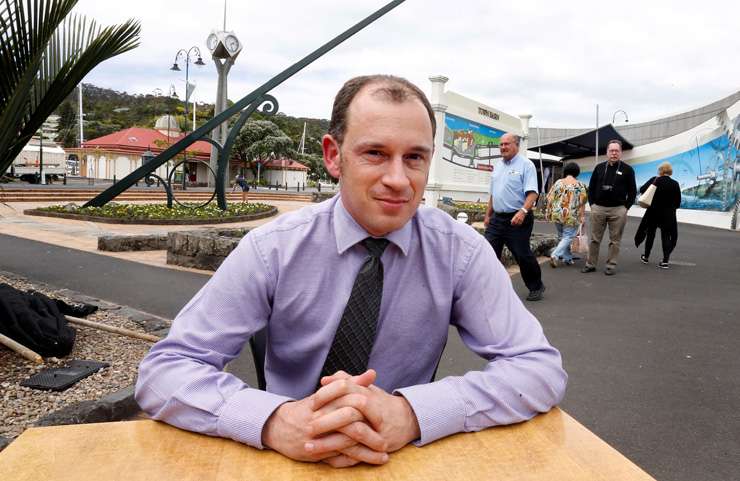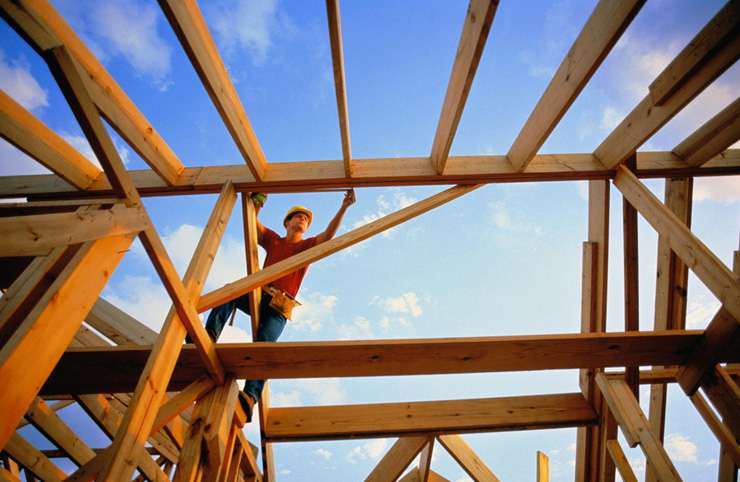New Zealand’s real estate land grab is grinding to a halt. The number of residential sections that were sold in New Zealand in the first quarter of 2022 was down 73% on the same quarter last year, new analysis shows.
OneRoof and its data partner Valocity examined every settled residential section sale in New Zealand between January 2019 and March 2022. The analysis showed a boom in land sales in the second half of 2020 as the housing market picked up steam following the first nationwide Covid lockdown.
Settled sales for the three months to the end of September 2020 hit 6269, up 67% on the same period the year before. The market peaked in the last quarter of 2020, with 6679 settled sales of residential sections recorded.
However, the analysis shows that the vacant land market entered a steep decline in 2021 as property prices started to accelerate nationwide. The number of settled sales fell from 5232 in the first quarter of last year to 2389 by quarter three. The rate of decline eased between quarters three and four – just -4% - but the drop-off between the last quarter of 2021 and the first quarter of this year jumped to -39%, as sales dropped to a low of 1396.
Start your property search
The number of settled sales for the month March 2022 was 480, just 180 above the record low of 300 recorded in 2020 when the country was reeling from the arrival of Covid-19 and the property market was on hold.
James Wilson, head of valuations at Valocity, said the sales covered in the analysis include those from land owners to builders (when they transacted on the open market, and not as part of multiple property deals), as well as those that were marketed directly to the public. They don’t include land and build packages, although Wilson said those sales were likely following the downward trend of land sales.
“Fear of missing out, or FOMO, really took off in the market after the first Covid lockdown,” Wilson said. “You can see in the numbers that people just flocked towards those vacant residential sites. The FOMO mentality was to secure the site now, and you can build on it straight away or hold it.”
Wilson said rising prices in 2021 had contributed to the slowdown in the market, but other factors had played a part too. “You’ve got a triple storm effect right now. Rising interest rates, and spikes in build costs and build times. The results are quite clear.”
He added: “The other thing to note with residential land sales is that sites tend to come to market in a flurry when a development comes on stream. When developments sell out there's usually a bit of a pause until the next one comes along. That means you get peaks and troughs in groups of months."

Valocity head of valuations James Wilson: “FOMO really took off in the market after the first Covid lockdown.” Photo / Fiona Goodall
Economist Gareth Kiernan, chief forecaster at data insights firm Infometrics, said that recent figures from the Real Estate Institute of New Zealand’s (REINZ) also showed a drop-off in land sales, but a rise in the median price for sections.
The median sale price for residential sections rose from $290,000 in September last year to $370,000 in April this year while the median days to sell fell from 102 to 41 over the same period. This could be as a result of developers with-holding land from sale in order to keep the supply and demand curve in their favour.
“The days to sell are at a record low,” said Kiernan. “It’s just fallen away really quite a lot over the last 18 months or so.”
He speculated that constrained supply was the driver in both. “If you look at those two indications, [sections] are selling really fast and the prices are still holding up. That’s not consistent with a drop in demand. But it's almost consistent with there not much land being brought to market anymore.”

Infometrics chief forecaster Gareth Kiernan says land sales have dropped off but demand hasn’t. Photo / John Stone
He added: “I was surprised by the REINZ numbers. I would have thought as a potential buyer at the moment, you would be struggling to justify buying a section for building on when you’re probably going to have to wait two years to find a builder and the cost [of building] is going up at 20% per annum. Why would you go through that?”
Mortgage broker Gareth Veale, from EasyStreet Mortgages, said developers had pushed up land prices around Canterbury. “There were a lot of sales last year, and the price points were a lot different to what the price points are now,” he said.
“I have six sections and one subdivision and Rolleston settling on June 13 and it's been a year since they were actually sold.”
He said the sites had jumped in price. One section a client signed up for at $236,000 last year was now valued at $430,000.
The arithmetic didn’t add up for anyone who wanted to buy a section now, said Veale. The prices being asked would mean first home buyers would exceed the price caps for KiwiSaver and the Government’s First Home Loan guarantee.

Build costs have gone up sharply, putting pressure on buyers. Photo / Getty Images
“If you add the section and the build cost, it's now getting out to like $900,000, in the likes of Rolleston. Whereas these clients who are settling today, their builds are in the late five, mid six hundreds.”
Although the developers were still looking for the high prices, Veale noted that one of his builder clients was offered a good discount on 11 sections that previously would have been reserved for much bigger players. ”They'd normally be worth $430,000 a-piece on the open market. My client was offered them at $375,000 if he took them all.” Normally a builder of this size would be overlooked on such sections in a popular subdivision.
In the current market it’s not uncommon to hear stories like that, Wilson said. “In a market like this, you'll usually find one of two things happen: one, developers will opt to use external experienced real estate agents; two, they do try to offload some of the sites at a discounted price to builders to basically put the risk on them.”
Asked if New Zealanders would be mad to buy sections right now, Wilson replied: “That’s a good question. It’s difficult to say across the board you shouldn’t do it. If you’re buying because you want to capitalise on the capital growth during the build, then I think you’d have to question that approach at the moment.
“If you’re buying because you want to get into a certain location, there is still a scarcity of land. But if you don’t need to move in a six-month time frame, then I think you could still consider it.”
Veale said land developers may prefer to sell fewer sections at the higher prices than flood the market with cheaply priced sales. “So it's probably why you're seeing a drop off, because they want to retain those capital gains that were achieved over that time.” But that probably can’t go on forever, he said.















































































